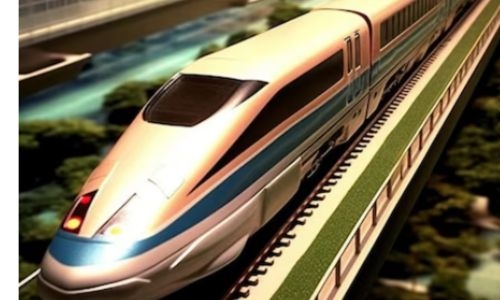Gulf Railway Project Nears Key Milestone: Operational Plan Study to be Awarded, Says MEED
TDT | Manama
The Daily Tribune – www.newsofbahrain.com
Email: mail@newsobahrain.com
The ambitious Gulf Railway project, aiming to create a unified rail network spanning over 2,100 kilometers across the six Gulf Cooperation Council (GCC) states, is making significant strides, according to MEED magazine.
The project, expected to be operational by 2030, is currently in the final stages of awarding a contract for a comprehensive operational plan study. This follows substantial progress on various segments of the project, including the completion of the UAE's section to the Saudi Arabian border, and the successful completion of the 200-kilometer Ras Al Khair-Dammam rail line in Saudi Arabia. Preparations are also underway for the Bahrain-Saudi Arabia causeway link.
A joint venture between Etihad Rail and Oman Rail, the Hafeet Railway Company, is developing a network connecting Suhar and Abu Dhabi. Design and implementation documents for the first phase in Qatar are finalized, and a consultancy agreement for Kuwait's section is expected in 2024.
Border meeting points have been identified, and 13 technical annexes governing execution and operation have been approved. A tender for an asset management system is also planned, alongside the ratification of a unified operational document.
The project is expected to significantly boost regional connectivity, trade, and economic integration. According to statements from GCC officials, the railway network is projected to carry 6 million passengers annually by 2030, rising to 8 million by 2045.
Freight volume is anticipated to increase from 201 million tonnes in 2030 to 271 million tonnes by 2045. The project's benefits extend beyond economic gains, encompassing improved intra-GCC trade, job creation, reduced road maintenance costs, strengthened social ties, decreased traffic accidents, lower fuel consumption, and a reduced environmental impact.
Related Posts

